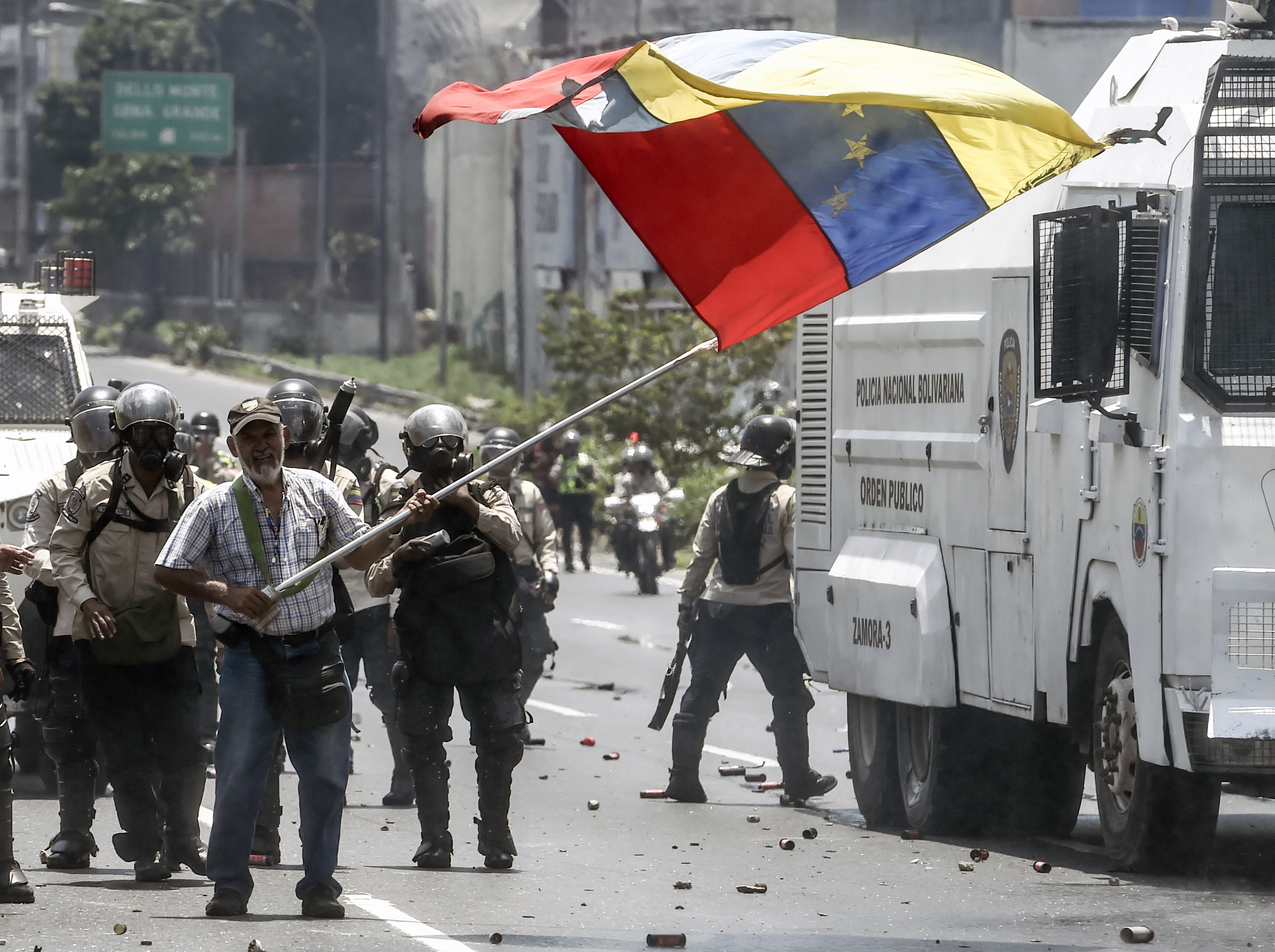Humanitarian emergency
“L’80% of Venezuela’s population faces food and medicine shortage. More than half of the population lives in conditions of extreme poverty, especially children and old people, the first victims of undernourishment. But the difficult situation involves everyone, the poor and the middle class alike. Some people have lost up to 20 kg because they can’t afford to buy food. Many rummage into the waste cans. Many children are undernourished.” The situation in Caracas described by the Director of Caritas Venezuela Janeth Marquez, who hopes in the resumption of dialogue with the Vatican’s mediation

Demonstrations and repressions of Nicolàs Maduro’s Government are ongoing. 32 people have died since the beginning of the month. The opposition forces have organized another rally in the capital city for next Monday to pay homage to the victims. A first-hand account by Janeth Marquez, National Director of Caritas Venezuela.
 Caritas Venezuela is responding to the humanitarian emergency caused by the political and economic crisis with solidarity soup kitchens where people share the little they have; through health programs, and medicine distribution.
Caritas Venezuela is responding to the humanitarian emergency caused by the political and economic crisis with solidarity soup kitchens where people share the little they have; through health programs, and medicine distribution.
What are the figures of the humanitarian necessities? A large part of the population is in need of help. According to official estimates, 80% of the population live in a state of poverty, 50% of whom in severe conditions. These people are lacking the means to survive, namely, they cannot afford to purchase medicine and food. Also middle class population affected by diabetes or high blood-pressure finds it hard to find the medicines they need. The quality of life has worsened, amidst surging diseases. For the Church and for organizations of civil society the situations grows worse by the day. Every day we receive requests for support, but it’s hard to choose who to help given the amount of aids needed.
Children and old people suffer the most, but the difficult situation involves the population as a whole – the poor and the middle class alike.
What form of support are you providing to the population? Caritas is deeply committed in facing the emergency situation. We organized solidarity soup kitchens throughout the Country along with health programs and medicine distribution to the most vulnerable brackets. The problem of child malnutrition is particularly dear to us, people are dying of hunger, many lack the means to purchase food owing to skyrocketing prices caused by inflation. The same goes for medicines, which are hard to find and very expensive.
Caritas efforts are carried out throughout the Country. You distribute food in the streets; you visit people’s homes, you convey your perplexities despite the presence of groups that defend the Government. Aren’t you afraid?
There are moments of fear. There are parishes where we cannot intervene owing to situations of insecurity and for the presence of armed groups.
But the population sees the Church as one of the most credible players, that implemented the highest number of social programs, soup kitchens and services. Many youths who used to help us as volunteers are leaving the Country, and this unfortunately severely impacts our work.
Did you manage to receive humanitarian aid from abroad, medicines in particular? We are not allowed to receive great quantities of aids through customs. We lack the authorization. It’s a very difficult and challenging task: we are asking for special permits to enable the shipment of humanitarian aids, but we haven’t received them yet because it would be an implicit acknowledgement of the fact that the Government is unable to solve the problems of the Venezuelan population.
Do you receive support from the international Caritas network? We have been receiving some support from Caritas USA. Despite the Country’s high GDP, many Caritas centres are aware of our difficult situation and that we have major needs. Caritas Spain and Germany want to help us. The help we received until now didn’t come through international cooperation networks ma thanks to the support of private enterprises in the Country that since then went bankrupt. Today they no longer have the means to support us.
Millions of people took to the streets in the past months as a sign of protest. Is the government losing consensus? In the past months people’s approach towards the government they had supported for 17 years has started to change. Many people are unhappy because they lack primary needs like food and medicine. That’s why many of them have taken to the streets. Some people have lost up to 20 kilos due to hunger, many rummage in the trash cans in search of food. There are many undernourished children.
Will something change in the future? The situation is extremely complicated. But at least people have started growing aware of the need for a change. As a Church and as intermediate body of social society, we believe that
Changes won’t come that rapidly. Despite a greater awareness compared to the past, social cohesion continues to be lacking.
Twelve Countries in Latin America have asked the Pope and the Vatican to attempt a new mediation after the last year’s. Do you think it could be possible? Last year the Government exploited the theme of dialogue to reconfirm the possibility of remaining in power. But we believe that
Negotiations are the only way out of this situation.
Dialogue is important, but it must be coupled by equal participation from the involved parties, along with compliance with the conditions requested by the Secretary of State Cardinal Pietro Parolin in his Letter, that includes the definition of an electoral timetable, the release of political prisoners, respect for the National Assembly, along with authorizations to receive humanitarian aids. The other requests are complex, but humanitarian assistance should be assured. A large part of the population has little faith in dialogue, which does not enjoy widespread support. But I believe that in the coming months dialogue will be necessary and fundamental.